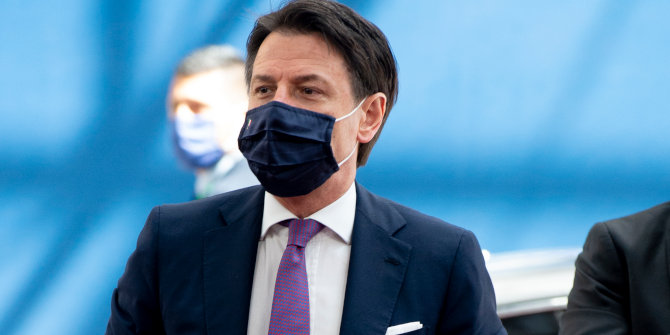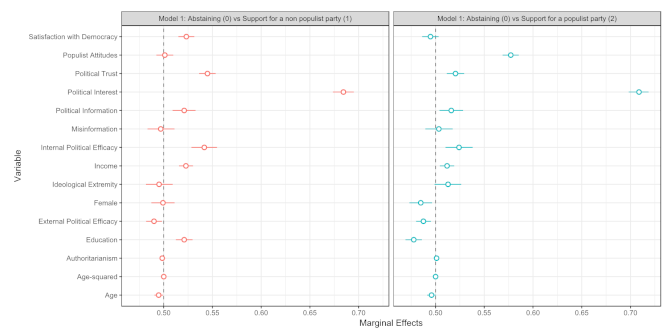Ursula von der Leyen, President of the European Commission, provided details on a new Media Freedom Act during her State of the Union speech on 15 September. Damian Tambini assesses the potential of the initiative, writing that it can be viewed as both a power grab and a principled protection of press freedom.
Journalists have been killed in Greece, Malta, the Netherlands and Slovakia in recent years, and there has been a crackdown on independent media in Hungary and Poland. EU countries are sliding down the press freedom league table. As a response to these threats, Thierry Breton outlined plans for a new Media Freedom Act in April. In doing so, he acknowledged that EU competence to legislate in this area is limited, but he also indicated that doing so is essential. Commission President Ursula von der Leyen further elaborated on the plan as part of her State of the Union speech on 15 September.
In fact, European media face a dual threat. At a recent hearing on media freedom at the European Parliament, Łukasz Lipiński, Deputy Editor of Polish newspaper Polityka, said that media in Eastern Europe were caught “between authoritarian power and tech giants.” On the one hand, politicians use increasingly sophisticated tools to dismantle media opposition, and on the other, media lack the money and distribution to fight back against these attacks because of dominance by tech giants.
Current laws do little to protect media against these threats. As an increasingly authoritarian Polish government extends control over the independent media regulator and the public broadcasters, smaller independent and international media remain as beacons of freedom. But such independent media that continue to operate are caught in a pincer movement as the Polish state-owned Energy company Orlen is embarking on a spending spree to buy up media companies and the government is writing new legislation to crack down on foreign media ownership. Polish law reforms will be an increasing source of conflict between Brussels – which views these laws as a way of controlling the press – and Warsaw, which points out that most democracies have curbs on foreign media ownership.
The EU law may also develop a common framework for media privilege. Journalists still brave enough to speak out can be silenced by what EU officials call a ‘SLAPP’: a strategic lawsuit against public participation. Newsmakers are long accustomed to receiving letters from lawyers threatening defamation actions, but research by campaigns such as the Index on Censorship indicates that these threats are becoming more common.
Murdered Maltese journalist Daphne Caruana Galizia received nineteen threatened lawsuits in the weeks before she was killed in 2017. SLAPPs are also increasingly effective. Cash-strapped newspapers are less likely to fight them, and more likely to cave in the face of existential levels of cost risk, particularly if judges are insufficiently independent or brave.
It may appear to be a contradiction to see what critics of the EU would call ‘unelected bureaucrats’ as the greatest hope to save democracy through saving a free media. But it might still be the best route forward.
Because the recent travails of the media result partly from structural economic change, the Media Freedom Act should seek not only to protect media from legal and physical threats, but must also do something to shore up the revenues they rely on, rebalance the relationship with digital platforms, institute new legal defences and independent regulation, and protect the ownership structures that directly control the media. This means a specific new ownership, competition and merger framework for media. Sabine Verheyen an MEP focusing on media and disinformation told a recent EU hearing that a structural approach was necessary and that the whole toolbox of EU instruments should be considered for inclusion in a Media Freedom Act.
Policymakers will soon find that in designing this they have to delve further into uncharted territory: when the media are supercharged by data-driven personalisation and AI, their potential to control public opinion becomes greater, but also smarter and more targeted. Traditional competition tools such as merger rules will no longer constrain it. Most countries have special merger and competition rules to prevent accumulations of opinion controlling power. These will have to be fundamentally rethought in the age of AI-powered news, and the EU is right to take the lead.
In doing this, the EU may set new global standards, as they did with privacy under the General Data Protection Regulation (GDPR). The European approach to media freedom is based on a fundamentally different philosophy to the US, where the Supreme Court has always resisted special rights for the media. It might be that a combination of the ‘Brussels Effect’, whereby standards set by the EU become global, and the economic necessity of saving independent journalism lead to a new and different approach in both the EU and the US.
But there are signs that the regulatory machinery of the EU is being honed into a much more integrated framework, and that the Media Freedom Act is part of a coherent, deliberate plan to shore up democracy. The Digital Services Act package published last year will set out a new deal for online media and journalism: offering them the distribution and revenue platform that they so desperately need.
In the new networked Europe, institutions like the European Regulators Group for Audiovisual Media Services (ERGA) are increasingly working like a federation of regulators and will continue to do so. Top EU official Roberto Viola told a recent workshop that “the debate on making ERGA stronger has just started.” The European Commission clearly intends to centralise and standardise media governance – and will not compromise democratic standards as it does so.
The truth is that this new EU initiative is both a power grab and a principled protection of democratic media freedom. Elected politicians have a poor record in taking tough long-term decisions to ensure free media, because they generally succumb to the temptation to favour their friends or enter obscure reciprocities with powerful media.
It may appear to be a contradiction to see what critics of the EU would call ‘unelected bureaucrats’ as the greatest hope to save democracy through saving a free media. But it might still be the best route forward – if these policies enjoy the trust and support of civil society. In developing a Media Freedom Act, the Commission is showing a willingness to boldly defend its founding principles of democracy. If it wants to do likewise, the Biden administration should watch closely and learn.
Damian Tambini’s new book, Media Freedom, will be published by Polity Press on 20 September. An LSE Event to mark the launch of the book will be streamed live on Facebook at 5pm (UK time) on 20 September.
Note: This article gives the views of the author, not the position of EUROPP – European Politics and Policy or the London School of Economics. Featured image credit: Minute of silence at the European Parliament in memory of murdered journalist Ján Kuciak, © European Union 2018 – European Parliament (CC BY-NC-ND 4.0)




